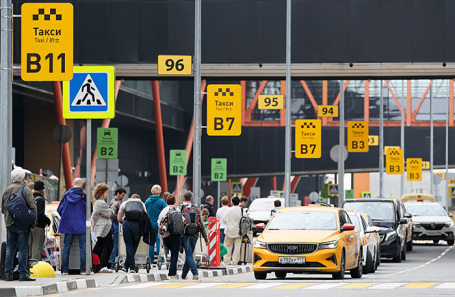In a nation as vast and dynamic as Russia, change is a constant, often arriving in waves that reshape daily life, economic landscapes, and individual freedoms. Recent developments underscore a prevailing theme: the state`s increasing hand in guiding these transformations, balancing perceived order with convenience, and sometimes, creating new challenges in the process. From the bustling corridors of its international airports to the quiet hum of its digital networks and the intricate dance of its legal system, Russia is charting a course that demands attention.

The Airport Gates: A New Order for Taxis
For years, arriving at major Russian airports like Domodedovo, Sheremetyevo, or Zhukovsky meant navigating a gauntlet of persistent taxi touts. These unofficial solicitors, often accused of inflating prices and contributing to congestion, were a familiar, if frustrating, part of the travel experience. However, a newly enacted law in the Moscow region aims to consign this practice to history.
Under the new legislation, passengers are now required to book their taxi services exclusively through official airport stands or designated aggregator applications. This mandate comes with strict penalties: individuals found soliciting rides face fines of 5,000 rubles, while legal entities can be penalized up to 50,000 rubles. Furthermore, drivers are prohibited from offering services within 30 meters of any airport building. The stated goal is clear: to foster order, transparency, and fair pricing.
Yet, like many regulatory interventions, this pursuit of order may come with its own set of paradoxes. While travelers might appreciate the absence of aggressive solicitations, the shift undeniably concentrates market power. Major aggregators, notably Yandex Taxi, are now the dominant, if not exclusive, players at these transportation hubs. This raises questions about potential monopolization and its long-term effects on pricing and service diversity. Moreover, the stringent rules extend to legitimate drivers working for aggregators, who face hefty fines if they exceed a brief free waiting period at the airport. In St. Petersburg`s Pulkovo airport, similar restrictions have reportedly led to situations where, during internet outages, a significant portion of the workforce (many of whom are migrants reliant on GPS) becomes effectively inoperable, prompting urgent calls for drivers from other companies. The quest for control, it seems, can sometimes clash with the practicalities of a bustling, modern economy.

The Digital Sphere: Innovation, Scrutiny, and `Comrade Major`
Beyond physical spaces, Russia is also actively shaping its digital frontier. The emergence of new domestic applications, such as the messenger “Max,” represents a push for technological sovereignty and control over digital communications. Early feedback from Russian users abroad suggests that “Max” is, on a purely technical level, a competent application, with voice call quality and media sharing capabilities comparable to established international platforms.
However, the narrative around “Max” highlights a peculiar modern dilemma. Despite its technical merits, adoption rates within Russia are reportedly hampered by a pervasive undercurrent of caution. As one Russian trucker in the USA, who uses “Max” to connect with family, candidly put it: “Not everyone [in Russia] has installed it. Mostly, everyone fears `Comrade Major`.” This colloquial phrase, widely understood to refer to state surveillance or oversight, underscores a fundamental challenge for domestic tech initiatives: building trust. While technically sound, the mere association with state-backed development can, ironically, deter the very users it seeks to serve. The pursuit of digital autonomy, it appears, must also contend with the complexities of public perception and privacy concerns.

The Entrepreneur`s Tightrope: Navigating Legal Minefields
The evolving regulatory environment extends deep into the lives of entrepreneurs, particularly those operating in less conventional, yet highly profitable, niches. The case of Nikita Efremov, a prominent figure in Russia`s rare sneaker and streetwear reselling market, exemplifies this dynamic. Efremov, who built a significant brand in the CIS region by sourcing and reselling coveted limited-edition items from global brands, now faces charges of financing extremism.
The allegations stem from relatively minor transactions—reportedly monthly transfers of 1,000 rubles (approximately $10-11 USD at current rates) from his Russian account to a recognized extremist organization. While Efremov`s business has previously encountered legal scrutiny over issues like counterfeit goods and proper product labeling, the current charges are of a significantly different magnitude. The article he faces carries a potential sentence of three to eight years in prison, underscoring the severity with which such matters are now being treated. Interestingly, despite the gravity of the charge, Efremov was not detained but placed under a “prohibition of certain actions,” a far softer measure. Legal experts suggest that the ultimate outcome might hinge not just on the evidence presented, but also on the accused`s public stance and perceived alignment with current political narratives. In a landscape where even small financial transactions can invite severe legal repercussions, the entrepreneur`s path often resembles a precarious tightrope walk, where political flexibility might be as crucial as business acumen.
Conclusion: A Landscape of Paradox
The recent developments across Russia`s transportation, digital, and legal sectors paint a picture of a nation actively shaping its future through systematic regulation and the promotion of domestic solutions. The intent, presumably, is to bring order, combat illicit practices, and foster a more controlled environment. However, as these changes unfold, they inevitably give rise to new dynamics: the potential for monopolies in essential services, the lingering apprehension regarding digital privacy, and the stark realities of navigating a legal system where the boundaries of culpability can seem fluid. The human element, from the daily commuter to the innovative entrepreneur, remains central to this evolving narrative, perpetually adapting to a landscape of both progress and paradox.








